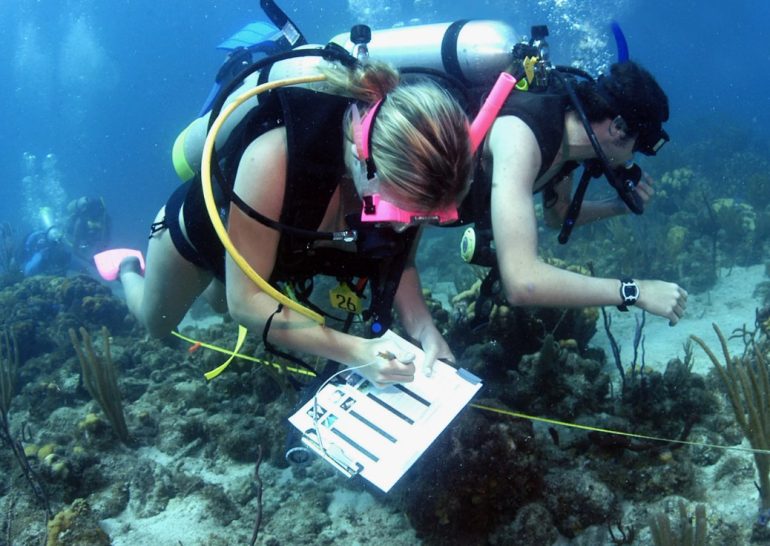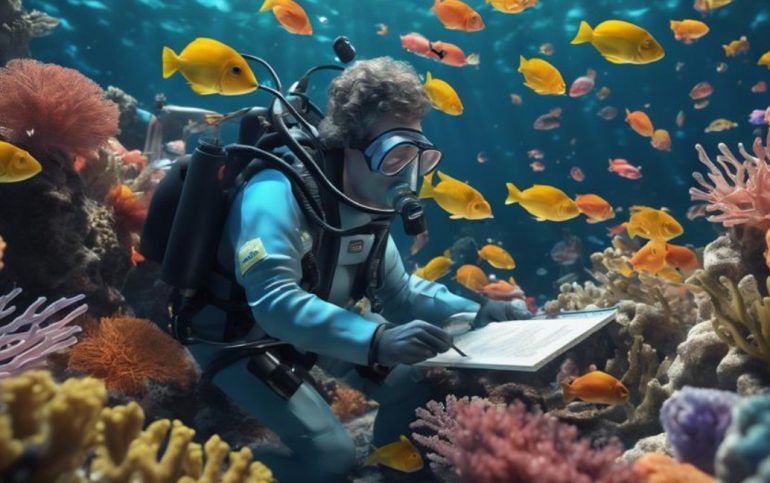
Exploring the ocean is more than just a dream; for some professionals, it is the reality of their everyday work. Beneath the surface of the water, entire worlds remain hidden, waiting to be discovered, documented, and protected. Specialists in marine sciences often combine physical endurance, curiosity, and technical knowledge to perform their tasks underwater. Their day involves not only research but also moments of challenge, excitement, and connection with a realm that remains unfamiliar to most people.
Blending Science and Exploration
Marine biology often takes shape far from laboratories, leading researchers directly into the ocean. Scuba diving becomes an essential tool rather than a hobby, as it allows access to habitats where delicate ecosystems develop. As a result, routine work may involve observing coral reefs, checking the health of fish populations, or collecting specimens from the ocean floor.
The Role of Field Researchers
Professionals in this path enter the water to gather fresh data that cannot be replaced by second-hand sources. They dive with cameras, measuring devices, or special containers to bring back samples. Such efforts feed larger scientific projects, producing results that are shared across institutions and conservation programs. For them, the underwater environment is both their workplace and their classroom.
Conservation Through Diving
Safeguarding marine ecosystems requires dedication and frequent direct interaction. Field professionals often monitor endangered species, rehabilitate coral reefs, and remove invasive organisms. Scuba diving ensures that observation happens in real time, providing the basis for decisions that influence the future of entire regions. Specialists also help restore fragile habitats by planting new corals or relocating vulnerable species.
Community Engagement and Education
Many divers working in conservation also share their experience with local communities. They conduct training sessions, involve younger generations in ocean care, and spread awareness about marine challenges. Through interaction, the line between science and public knowledge becomes thinner, inspiring support for ongoing projects.
Practical Skills Below the Surface
Technical knowledge is vital, but equally important is physical preparedness. Divers engaged in marine science must navigate strong currents, unpredictable weather, and depth-related risks. Their knowledge of safety protocols ensures that research continues without interruptions. This combination of strength and careful planning defines the daily character of their profession.
Tools and Techniques Enhancing Work
Every diver relies on more than a snorkel and oxygen tank. Advanced tools such as underwater drones, waterproof notebooks, or digital imaging systems accompany them into the depths. These instruments expand the range of their studies, making it possible to record details otherwise overlooked by the human eye. By combining hands-on experience with technology, they enrich the accuracy of their work.
Unique Career Pathways
Those who ask themselves “What Marine Biology Jobs Involve Scuba Diving” often discover surprising diversity. Some careers focus on fisheries research, others emphasize habitat restoration, while a few center on documenting rare species. Each role brings a unique interaction with the ocean, shaping both scientific understanding and personal fulfillment. The sense of discovery remains a constant thread regardless of the specific occupation.
| Career Focus | Underwater Tasks |
|---|---|
| Coral Reef Observation | Checking reef health, monitoring bleaching, documenting recovery |
| Species Monitoring | Counting populations, observing behavior, recording patterns |
| Ocean Mapping | Creating precise maps, using sonar and visual reference while diving |
| Conservation Projects | Rebuilding coral structures, relocating species, cleaning waters |
| Educational Outreach | Training divers, guiding students, leading underwater workshops |
The Adventure of Research Voyages
Not all dives are done near shorelines. Some specialists join expeditions that explore deep or remote locations. Research vessels carry them far away from urban centers, where they spend days or weeks at sea. Such journeys intensify the sense of immersion, turning their work into authentic discovery voyages.
Challenges that Build Character
Life at sea during these expeditions means dealing with constant change. Conditions alter quickly, from water temperature to visibility. For many, these challenges become part of the story, strengthening resilience while adding excitement to their journey. Each dive tests both mind and body, yet also rewards with unique sights that only a few people on Earth ever witness.
Personal Fulfillment Through Diving Work
Everyone searching for an ocean-related career eventually wonders: What Marine Biology Jobs Involve Scuba Diving in ways that bring joy, knowledge, and a sense of mission? People in these roles often share that diving is not only a professional activity but also part of their identity. The connection with marine life, combined with the chance to protect and research it, turns every day into something more than routine. In essence, their life under water is inseparable from their growth as individuals and experts.
For those who dream beyond typical office walls, opportunities within marine sciences present a path filled with discovery. Asking the question What Marine Biology Jobs Involve Scuba Diving leads to understanding how diverse and fulfilling these professions can be. They open doors to scientific progress, cultural exchange, and personal achievement. The ocean remains vast and mysterious, and those who dedicate their lives to it make their work a daily adventure in the truest sense.

